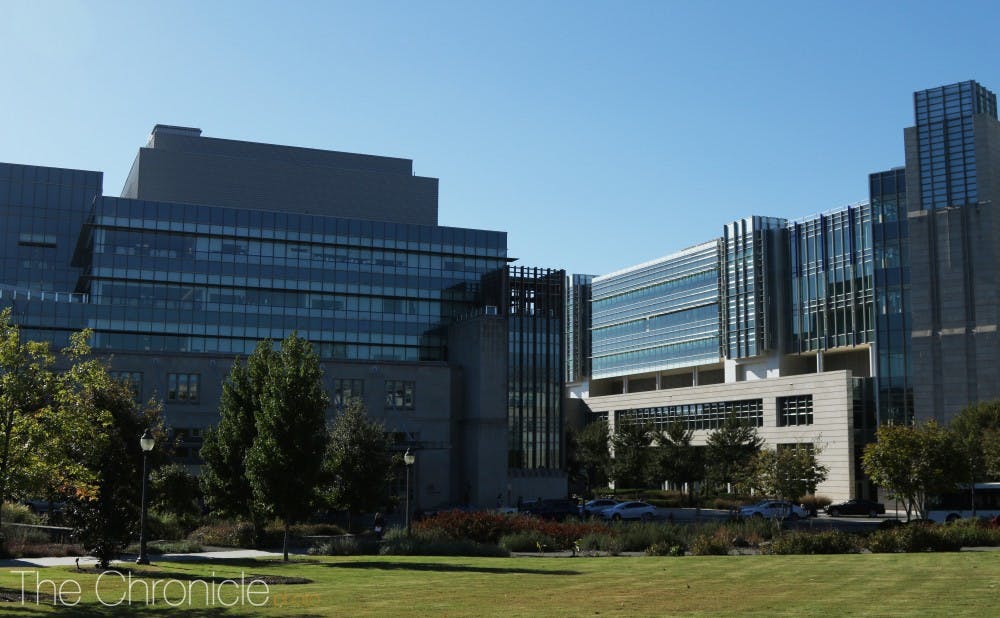A team of 40 Duke medical personnel recently came together to perform the first bilateral hand transplant in North Carolina.
The patient, Deb Kelly, had her tumultuous journey begin on Easter Sunday in 2017, when she felt that something was wrong with her. By the next day, she was on life support and remained unconscious.
Her life was drastically changed when doctors diagnosed her with an invasive form of streptococcus that required her hands and legs to be amputated. Simple tasks became a burden, as she had to relearn everything. However, 14 months after the amputation, Kelly would regain an important aspect of her life through a hand transplant operation at Duke Hospital.
Linda Cendales, director of the Duke Vascularized Composite Allotransplantation Program, led the team that performed the procedure. Kelly was approved for the surgery as part of a clinical trial and put onto the transplant list. She underwent surgery on Thanksgiving in 2018.
A bilateral hand transplant involves tremendous complexity and time that few places in the world can perform, Cendales explained. She added that Duke was able to combine doctors of different specialties to assist before and during the procedure.
“Hand transplantation is an innovative therapy. Our clinical trial at Duke includes a very thorough screening evaluation to determine who is approve to move forward with the Phase II of the study, which is the transplant," Cendales said. "The decision is made as a committee. Currently, it hasn’t been defined who is the best candidate and when to do the transplant [related to the time from amputation to transplantation]. Those are two next challenges for the field."
She explained that although the surgery itself took around 15 hours, the medical knowledge and studies necessary to attempt the surgery have been in development for years.
“The preparation has been taking place for over two decades. These include pre-clinical and clinical studies approached in a comprehensive, systematic and interdisciplinary manner," she said. "The technical aspect is unique but other aspects such as immune management, occupational therapy, neuropsychology, perioperative services and the transplant and research infrastructures are as important."
Since the operation, Cendales explained that Kelly’s response to the transplant has been overwhelmingly positive—she has regained independence as her abilities continue to increase.
“Ms. Kelly is a very deserving patient who we follow very closely. She’s doing very well, she's tolerating the study medication, [Belatacept], well and continues undergoing occupational therapy," Cendales said. "She is performing activities of daily living independently with her transplanted hands."
The success of Kelly’s bilateral hand transplant carries many promising implications for many patients of the future. Her transplant was part of a clinical trial designed to reduce the dose and frequency of a medicine that tames the body's immune response when an organ is transplanted.
“This study is beneficial in more than one way. It provides the patient with an option to improve her quality of life," Cendales said. "Also, this is being done on a research protocol designed to lessen the risk of immunosuppression. As such, this will benefit more than one patient."
At the end of the day, she said she hopes that individuals in present and future generations can benefit from the advancements her team has made.
“There are many aspects of my career that I enjoy. I like patient care. I also like understanding, and answering questions using the scientific method," Cendales said. "This field has immense potential and is for the future generations to take it to the next step. Paving the road for them as it was paved for us is paying it forward.”
Get The Chronicle straight to your inbox
Signup for our weekly newsletter. Cancel at any time.

